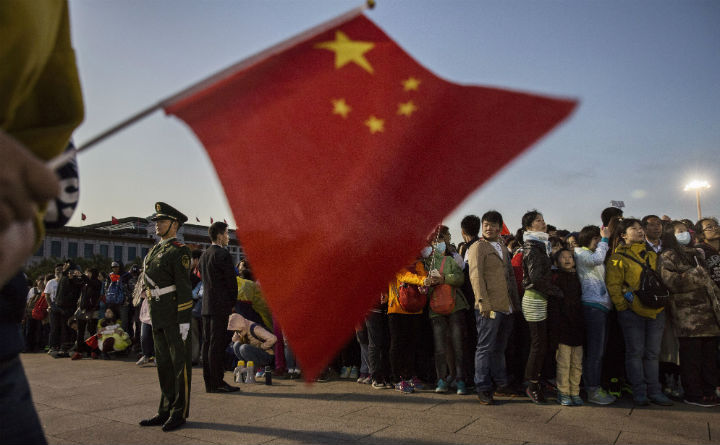Two Chinese dissidents were due to be resettled in Canada when they were deported from Thailand to China, despite the Thai military junta being aware of their refugee status.

Reuters reported Monday the United Nations High Commissioner for Refugees (UNHCR) sent a letter to Thailand’s foreign ministry on Nov. 16, saying the agency had told the government Jiang Yefei and Dong Guanping were due to be resettled in Canada.
Global News reached out to UNHCR Canada and the Canadian government to confirm details of the case. So far, neither has responded.
According to Reuters, the Thai government said it “did not know” the men were protected when authorities arrested them, at China’s request, on Oct. 28.
READ MORE: Miss World Canada denied entry to China for pageant
Thawip Netniyiom, the secretary-general of Thailand’s National Security Council, later said the men were accused of “human trafficking offences.”
“We considered the matter carefully and stuck to laws and international agreements,” the Bangkok Post reported Thawip saying.
UNHCR disputes that.
“They should not be sent back to a place where their lives can be put in danger,” Vivian Tan, UNHCR’s spokesperson in Thailand, said Nov. 19. “These people are recognised refugees, meaning they were interviewed and their claim of persecution was found to be legitimate.
The New York Times reported Thursday the families of the two men travelled to Canada after the deportations were carried out.
The wife of one of the men accused the Chinese government of tricking the men into signing deportation papers.
“They said they were from the United Nations,” Chu Ling, the wife of Jiang Yefei, told Al Jazeera. “They said they were here to help them and that they must sign some papers to allow them to travel to Canada. But the document was in Thai. They signed it even though they couldn’t understand the words. Later, we found out that they had signed papers agreeing to be deported back to China.”
According to Amnesty International, Jiang Yefei fled to China, along with his wife in 2008, after being detained and tortured for his criticism of the government’s response to the deadly magnitude-7.9 earthquake that struck Sichuan province in May of that year and left more than 87,000 people dead or missing.
READ MORE: China’s Nobel peace laureate sends message from jail
The human rights organization, in its call for urgent action on the case, said Chinese authorities had detained Dong Guangping for nine months, between May 2014 and February 2015, after he took part in a 25th-anniversary commemoration for the victims of the Chinese government crackdown in Tiananmen Square.
Human Rights Watch said Thailand had violated its obligations under the Convention against Torture.
“These actions blatantly contradict the pledge to uphold rights that the prime minister made before the UN General Assembly. It’s deeply alarming, if not surprising, that the junta’s deference to abusive neighbors takes priority over the rule of law,” Sophie Richardson, Human Rights Watch’s China Director, said in a statement.




Comments